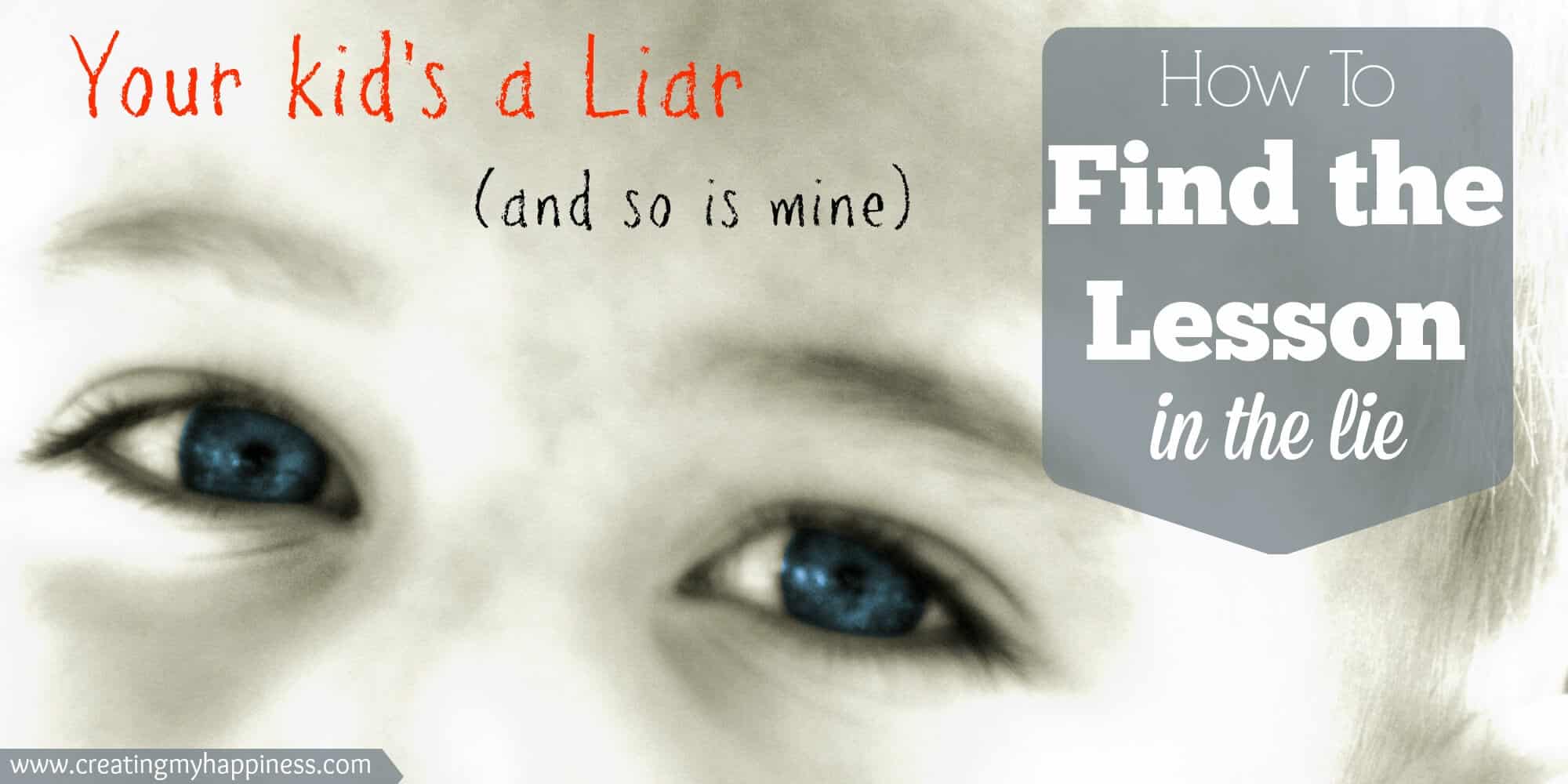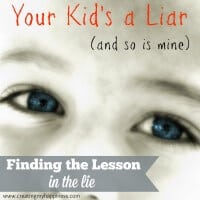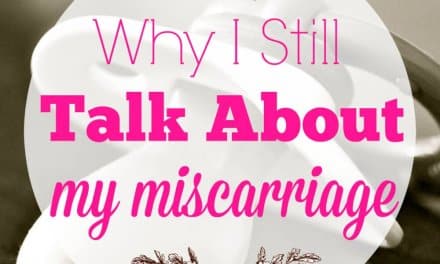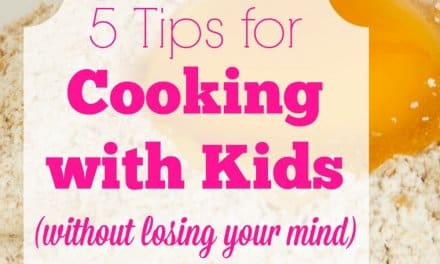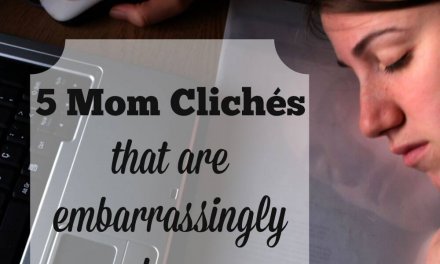Last night Miss O came home and told me that David (not his real name) hit her at school. She said he took her toy, hit her in the face, and pushed her down.
Naturally my instinctive reaction was one of anger at this David kid. Who did he think he was?! Where were the teachers?! Why was some kid being permitted to hurt my daughter?!
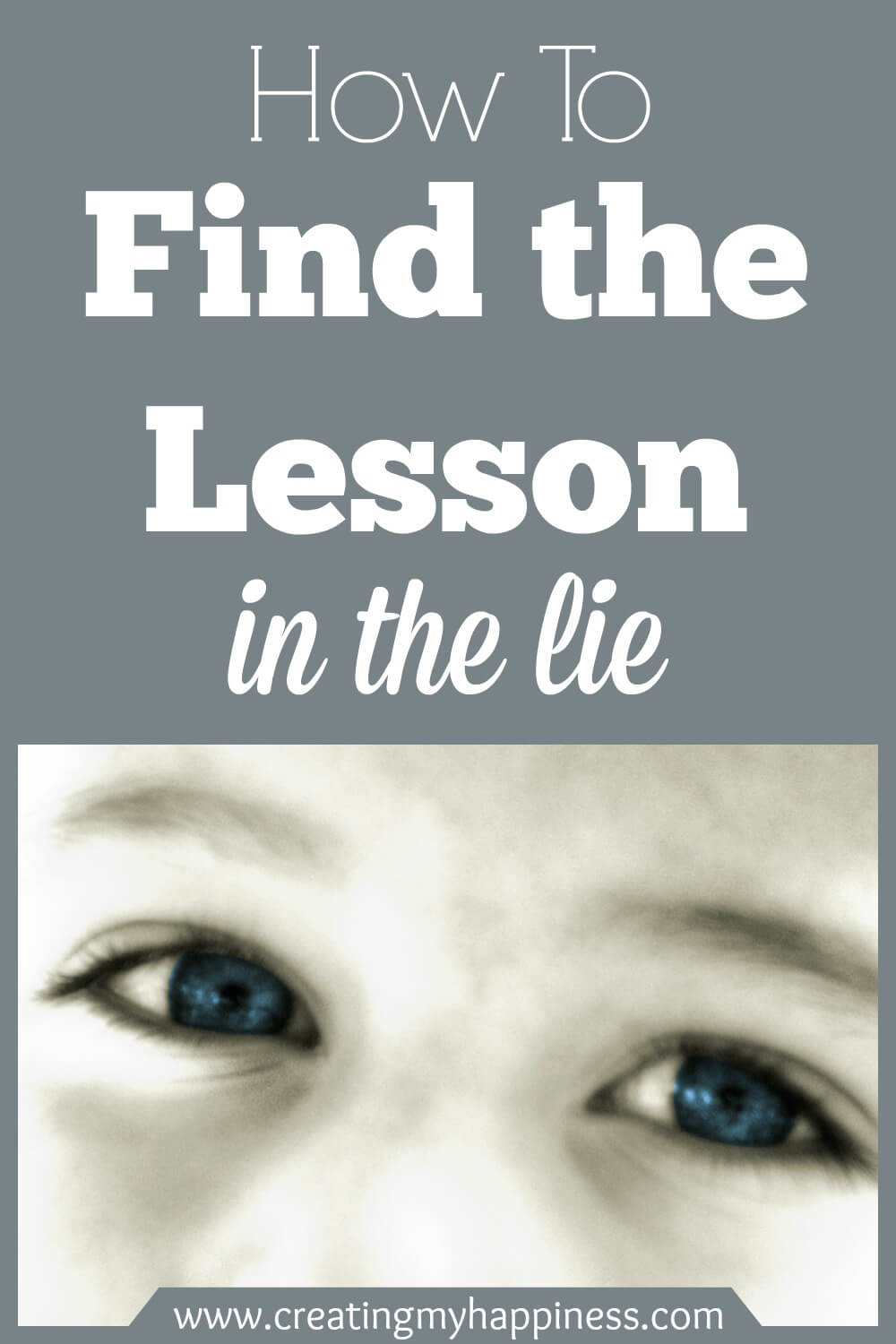
But after that initial flash passed I was able to think about it… This story sounded familiar. Just like something that happened a few months ago (and was well handled by the daycare staff). I questioned Miss O. “Did this happen today?” “Yeah,” she wimpered. “He took my toy and pulled my braid.” Hmmmmm. She didn’t have a braid today. We chatted some more and I helped her remember that everything she was talking about happened a long time ago. We both felt better.
Here’s the thing. Kids lie. Young children lie. Teenagers lie. Preteens lie. They all lie.
Did you do your homework? Yes.
Did you break the tv? No.
Who did this? Anyone but me.
And there are a myriad of reasons why they lie. Some lie because they don’t understand the consequences of lying. Some lie because they don’t want to get in trouble, or because they didn’t notice all the details, or because they don’t know the whole story. Some kids lie because they feel backed into a corner. Some kids lie to get away with something. Some kids lie by omission. Some kids flat out lie. Some may look you straight in the eye and lie. Some are horrible liars, but they still try to do it, because they’re kids. And kids lie.
It’s not wrong to acknowledge that kids lie.
It’s not wrong to question what your kids say.
It is not a reflection on you as a parent if your child tells a lie.
Your child is not the only child who tells lies. He is also not the only child who never lies. (If you think that you’re lying to yourself.)
I know what you’re thinking, I want my kid to know that I’m always on her side. But being on her side isn’t the same thing as taking her side. Sometimes being on her side means helping her see something she was missing, or helping her understand a complex situation.
What happens to kids who get away with lying? Lying becomes normal. Lying becomes acceptable. Lying becomes part of who they are.
Children aren’t really liars. They are people who are trying to learn how to interact with people around them, testing the waters. But children who are never called out for lying become liars. Untrustworthy people.
On the other hand, questioning your child opens a dialogue. If they’re being honest, you can deal with the whole truth. If they’re being dishonest you can deal with that, too. It might feel unnatural at first and your child may get defensive, but if you’re consistent and your questions come from a place of love it will get better.
So what do you say? How do you start the conversation?
Start with empathy. I can hear/see you’re very upset about this. A little understanding goes a long way. No matter what the situation, sadness, anger, fear, etc. are legitimate feelings and should be acknowledged. You have to move past the emotion of a situation before you can get to the truth.
You can also try to evoke empathy; It’s upsetting me that I don’t know what happened to my favorite necklace. Keeping the focus on finding out the truth rather than the damaged necklace makes it easier for your child to be honest – after all, you’ve just stated that you’d feel better if you knew she broke it. If you focus on the object, the broken necklace, it’s harder for her to confess to being the one who broke it.
Ask open-ended questions. Can you tell me more about it? Leave the answer up to them. Leading questions like, “Were you being a good boy?” probably aren’t going to help you get to the truth because of course he’s going to say yes. Kids care what we think of them. Plus, open-ended questions usually lead to more questions.
Get to specifics. What else was going on? What were other people doing? What were you doing? What are the rules about this? Before you can appropriately react, you need to understand the whole picture. Often times this can help your child see something more clearly, show empathy for what someone else might have been going through, or take ownership of his own actions.
Come up with a plan. Figuring out together what happens next, whether it’s a consequence or a hug, can be a productive way to end a discussion. It’s not always possible in every case, but many kids will benefit from helping to figure out a logical consequence to their actions. In fact, many kids will be harder on themselves than you would have been. Hearing that what they did is not an unforgivable offense can go a long way to helping them learn to be honest and forthright in the future.
Let me just point out that I’m not a parenting expert. I’m not a specialist. I don’t have PhD. I’m just a mom and a teacher who knows that my kid, like yours, lies.
So let’s embrace the lie. Let’s have the conversation about the lie. Let’s find the lesson in the lie. You might learn a lot about your child – and yourself – in the process.
